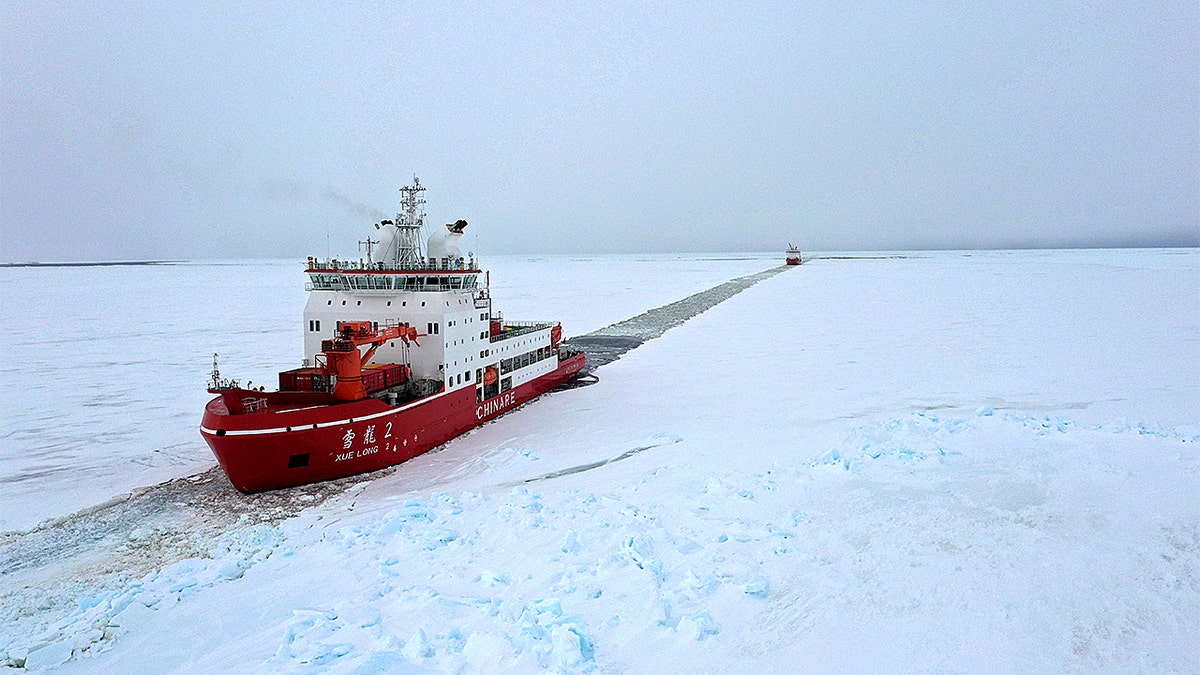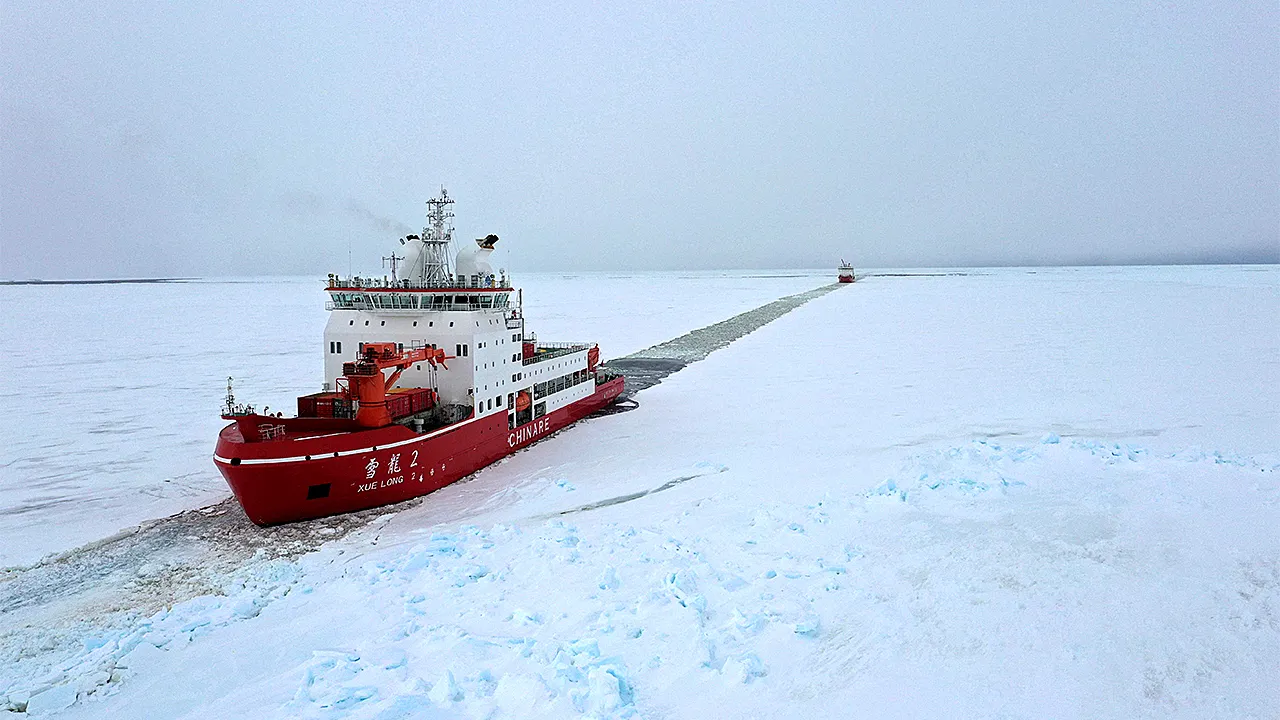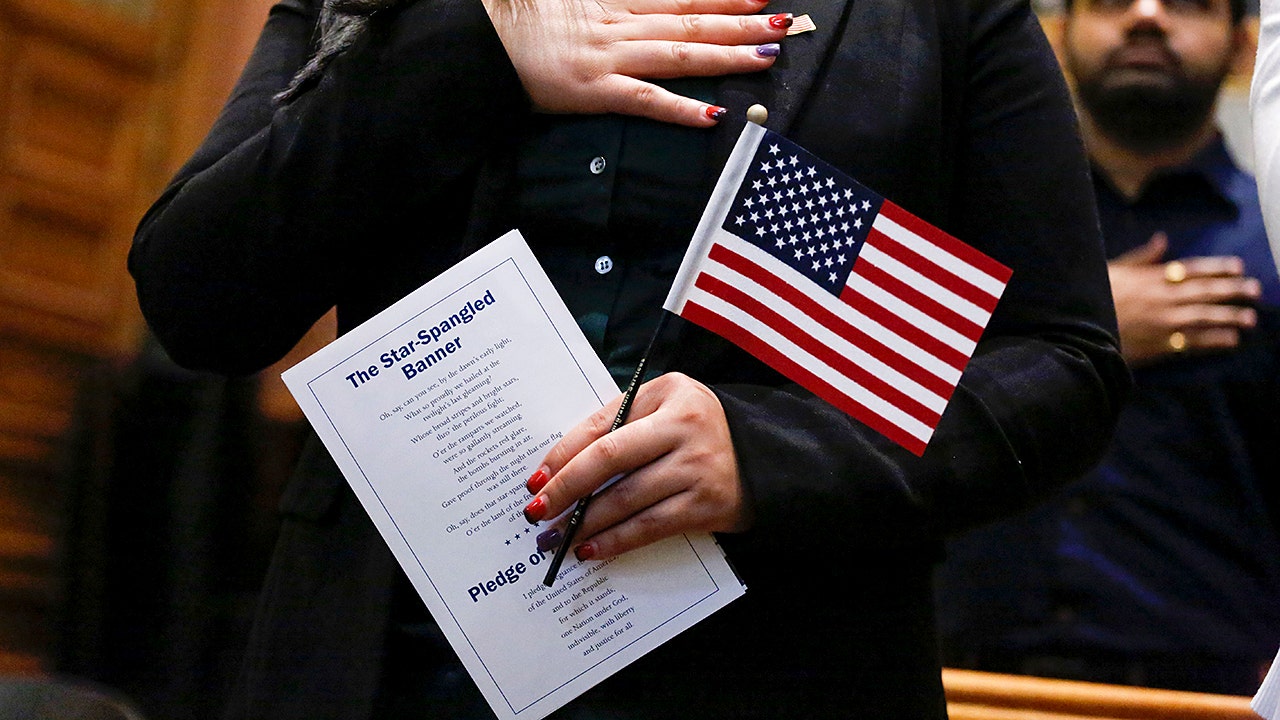NEWYou can now listen to Fox News articles!
The U.S. Coast Guard is turning to Finland to bolster America’s icebreaking fleet — a move driven by growing concern that the United States is falling behind global rivals in the race for Arctic influence and security.
For years, military and intelligence officials have warned that the U.S. has only a handful of aging icebreakers — compared with Russia’s fleet of more than 40, including nuclear-powered models. As melting sea ice opens new shipping lanes and access to critical minerals, the Pentagon and Coast Guard say a stronger Arctic presence is no longer optional.
On Thursday, President Donald Trump and Finnish President Alexander Stubb signed a $6.1 billion deal for Finland to sell up to four new icebreakers to the U.S.
Defense officials say the Arctic is now the front line of homeland defense — where U.S. early-warning systems, missile detection networks, and undersea cables intersect with expanding Russian and Chinese military activity.
RUSSIA, CHINA ARE TRYING TO SEIZE CONTROL OF THE ARTIC. WE CAN’T LET THEM SUCCEED
“We need these ships very badly because we have a lot of territory, more than anybody. And so, I’m very honored to have this deal. And thank you very much. It’s going to be great,” Trump said at the White House.
The purchase from Finnish shipbuilders, who are world leaders in polar vessel design, is part of a broader plan to close the “icebreaker gap” that has left the U.S. dependent on outdated ships for Arctic patrols and Antarctic resupply. Finland, a new NATO member, has joined the U.S. and Canada in the ICE Pact — an agreement aimed at fast-tracking icebreaker construction, sharing technology, and strengthening allied operations in polar waters.

The Coast Guard’s newest polar icebreaker, the U.S. Coast Guard Cutter Storis, returned to port in Seattle earlier this week after 112 days at sea, where it monitored Chinese-flagged research vessels Jidi and Xue Long 2.
Russia and China held joint naval drills in the Bering Sea off Alaska in recent months.
FRANCE WARNS OF GLOBAL ‘BRUTALIZATION’ AMID TRUMP ARCTIC DISPUTE OVER GREENLAND
The Storis was the first polar ice cutter the Coast Guard had acquired in 25 years when it was purchased in 2024. The service currently only has two others in commission: the 48-year-old Polar Star heavy icebreaker and the medium icebreaker Healy. Coast Guard officials insist they need at least eight polar icebreakers to meet operational needs.
The Coast Guard also has 21 domestic icebreakers, designed to clear channels for commercial shipping in waterways like the Great Lakes, 16 ice-capable buoy tenders, capable of breaking up thin layers of ice.

One of Russia’s central goals in the Arctic is solidifying control of the Northern Sea Route, the ‘ice highway’ along its northern flank connecting Europe to Asia via Arctic waters.
Russia has been actively militarizing its Arctic, redeploying air, naval, missile, radar, and anti-submarine assets to forward bases. Because Russia’s naval nuclear deterrent (especially ballistic missile submarines) relies on Arctic sea lanes for stealthy deployment, Moscow views Western surveillance or military presence in the region as a direct threat.
The Arctic is also rich in hydrocarbons, minerals, and rare elements — materials that the U.S. and all of its near-peer competitors are trying to secure dominance over. China currently controls most of the world’s supply of rare earth elements and minerals.
Though China is not an Arctic state, it labels itself a “near-Arctic” power and is pushing to be a recognized stakeholder in Arctic affairs. China has inserted the Arctic into its Belt and Road vision via the “Polar Silk Road” — a conceptual maritime route over the Arctic connecting China and Europe.













